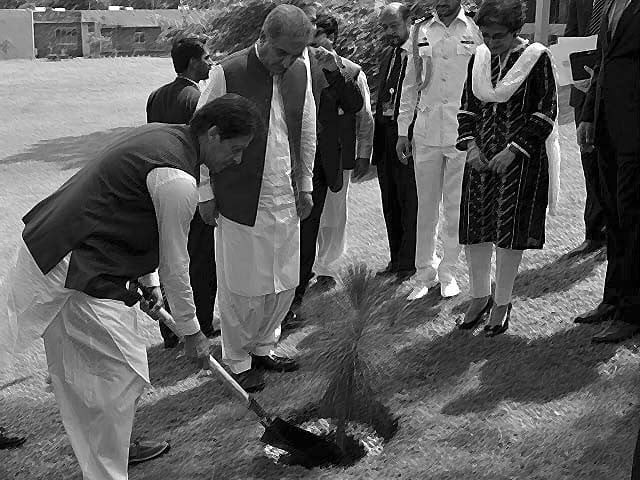Over a decade ago when I attended the Copenhagen Climate Summit in 2009 as an aspiring climate journalist, I was told by senior climate experts:
“There are three crucial points to remember about climate change: it is happening faster than scientists expected ten or even five years ago; the decisions we do – or don’t – take in the next few years could have effects far into the future; and climate change can feed on itself”.
Fast forward to 2021 and it seems like the future is already here. This year alone the world has witnessed devastating floods in China and Germany, scorching heat waves in Canada and wildfires in Turkey and Greece. This week, in its strongest statement made to date, the UN’s Intergovernmental Panel on Climate Change (IPCC) declared: “the role of human influence on the climate system is undisputed”. This is as clear a statement as can be made by the panel of top climate scientists from across the world. The work of the IPCC is vitally important: it is not only the scientists who agree with it, but the governments of the world as well, so its reports are very significant statements.
In fact, the first part of the 6th assessment report doesn’t mince any words: a human-driven climate crisis is now well under way. The Earth is now hotter than it has been since the beginning of the last Ice Age (125,000 years ago!). The planet has warmed around 1.1 degrees Celsius since the Industrial Revolution began. The current series of disasters are a direct result of global warming and more disasters will certainly take place unless humanity reduces its greenhouse gas emissions to zero quickly. That means the use of fossil fuels has to be phased out fast and the world must protect and enhance its green cover.
According to Dr Stephen Cornelius, Chief Adviser on Climate Change & Global lead on the IPCC from WWF:
“This is a stark assessment of the frightening future that awaits us if we fail to act. With the world on the brink of irreversible harm, every fraction of a degree of warming matters to limit the dangers of climate change. It is clear that keeping global warming to 1.5C is hugely challenging and can only be done if urgent action is taken globally to reduce greenhouse gas emissions and protect and restore nature”.
Years ago we were told in Copenhagen that 2 degrees Celsius is “the guardrail” which may protect us from extreme danger meaning if the global average temperature increases more than 2C above its pre-industrial level, then there may be no chance of limiting climate change. Senior climate scientists now say the figure should not be 2C but 1.5C – and we are certain to reach that soon. We are already at 1.1C of warming and just look at what is happening around the world from intense rainfall to unprecedented heat waves.
We were told by climate scientists back then that we cannot just go on as we are – what is called “the business-as-usual scenario” – because that would mean unlimited emissions building up in the atmosphere, and unknowable temperature rise. One of the key takeaways of the current IPCC report is that it is now clear that the world may be heading towards 1.5C temperature rise by 2040. Meaning, the guardrail of what is considered “relatively safe” could be breached in the next two decades itself, within most of our lifetimes! This is an extremely dire warning by scientists.
The IPCC is calling upon humanity not to lose any more time to take action. Governments need to take drastic action to cut emissions, especially top contributors to climate change like the US, China, European Union, Russia, UK and Japan who all contribute 60 per cent of the global carbon dioxide budget. The upcoming UN Climate Change Conference in Glasgow this November will be an extremely important global event where important decisions by governments will have to be made.
While Pakistan is not a high emitter of carbon dioxide, it is in the top-10 list of countries that are the most impacted by climate change. According to the Germanwatch annual report, ‘Global Climate Risk Index 2021’, Pakistan ranks number 8 on the list of countries most affected by climate related disasters in the long-term from 2000 to 2019. The report highlighted that in this nineteen years period, 173 climate-related events had occurred in the country with around 500 fatalities.
According to Malik Amin Aslam, the Special Assistant to PM Imran Khan on Climate Change, “almost five to six percent of our GDP is washed away every year. Climate change is a reality for us, from super floods to heat-waves to glacial lake outburst floods”. Aslam was the architect of the successful Billion Tree Tsunami Project implemented in KP. Under the project 60% of the billion trees were grown as a result of protecting natural forests while 40% came from new plantation done by local communities with the help of the local Forest Departments in the province. About 40% of the country’s remaining forests are located in KP. According to Aslam, the Billion Tree Tsunami has actually increased the forest cover in KP by 6%.
Currently, nationwide activity is taking place in the rainy season as part of the Ten Billion Tree Tsunami drive led by the Ministry of Climate Change under the PM’s Clean and Green Pakistan Initiative. PM Imran Khan’s government is giving high priority to reversing Pakistan’s environmental degradation and improving its forest cover while addressing climate change. Their flagship Ten Billion Tree initiative, which they say will create 200,000 new green jobs, began in July 2019.
The Ministry of Climate Change has now prepared seven different plans for all the provinces and territories, ranging from protecting mangroves on the coast to enhancing natural forests in the north and the plantation of new forests in the plains. It is a four-year project fully funded by the Government of Pakistan with a total cost of Rs 125 billion. The project is currently being implemented by the Ministry along with provincial Forest and Wildlife departments. Just recently they achieved the 1 billion plantation target set for 30th June 2021.
In all the provinces, the federal government provides half of the funding while the provincial governments pay for the rest through their development budgets. The cost includes a geo-tagged system that helps organisers monitor the trees using GPS. Once the trees grow they will be monitored by satellite. The programme will be independently monitored by a consortium which includes IUCN and WWF and the United Nations Food and Agriculture Organization (FAO).
WWF-Pakistan’s Senior Programmes Manager Rab Nawaz says the current scaled up effort of planting trees is “a very good idea to create green jobs and get people employed during the pandemic”. But he cautions that planting trees is just one tool in the fight against climate change, saying the government also needs to invest in improving the ability of farmers and city dwellers to adapt to the effects of global warming. The government also has to reduce its own carbon emissions by transitioning to renewable energy sources as we head to a net-zero emissions future.



COMMENTS
Comments are moderated and generally will be posted if they are on-topic and not abusive.
For more information, please see our Comments FAQ